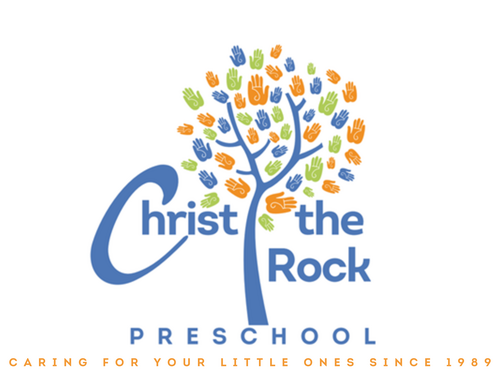Jesus said, "Let the little children come to me..."
Matthew 19:14
What is play-based learning?
Play-based learning is a system that uses play as a context for learning. As children play, they engage their imagination, take risks, and learn problem-solving to support their development. Play-based learning is child-initiated and teacher-supported.
What are the benefits of play-based learning?
Language
A child's vocabulary significantly improves during preschool years. Play-based learning allows children to explore new vocabulary words in an organic, relevant, and authentic way. Play-based learning also allows children to engage in different forms of playful and reciprocal conversations. For example, when children are engaged in pretend play, one child may take on the role of the doctor and the other as the patient. Both children may take a turn asking a question or sharing information relevant to their roles.
Educators can support the children's language development by introducing new words, participating in games, encouraging conversations, and asking questions.
Educators can support the children's language development by introducing new words, participating in games, encouraging conversations, and asking questions.
Creativity and imagination
Fostering imagination and creativity in young children have endless benefits for their social-emotional and cognitive development. When a child engages in play, they have the opportunity to explore and develop their problem-solving skills and interpersonal skills. Play sparks and develops creativity and imagination. Pretend play typically emerges when a child is about 2 years old. You might observe them feeding a doll or rocking them to sleep. Later stages of pretend play become more complex with different settings, roles, props, and achieving a common goal with a peer.
Social and emotional skills
Play-based learning has a significant impact on a child's social and emotional development. They learn how to manage and deal with their emotions and the emotions of others. Children also learn to communicate their needs with their peers and other essential skills like turn-taking and conflict resolution when playing. As they play, they are figuring out how to patiently wait for their turn to access an area or work with a material, negotiate, cooperate, and solve problems with their peers. All these are indispensable social skills.
A Positive disposition toward learning
There are so many ways play-based learning improves the child’s attitude toward learning. Children are invested in activities because they're driven by their interests and curiosity. Giving children autonomy during play is not only fulfilling, but also allows children to confidently explore challenges, make goals, take appropriate risks, and learn to be persistent.
Motor Skills
Play also enhances a child's motor skills. For example, activities such as painting, drawing, role-playing, and building boost fine motor skills, while jumping, throwing, climbing, and running boost gross motor skills. Creating daily lesson plans is a way to ensure you are incorporating play-based learning into your educational program.
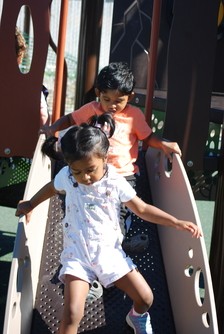
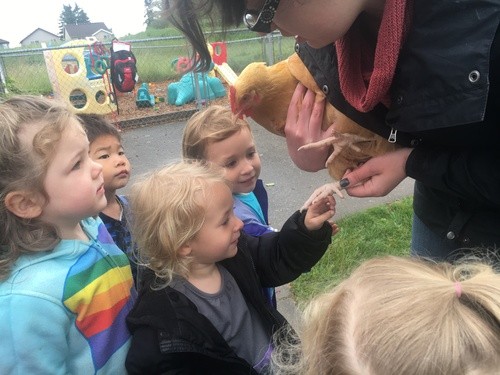
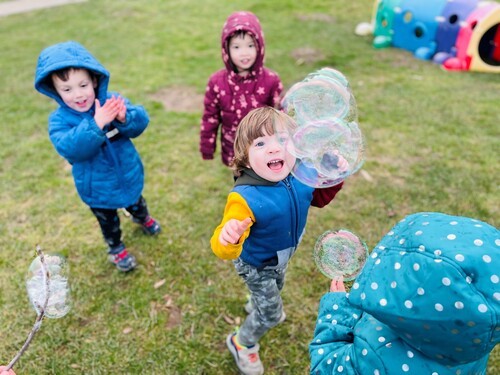
Examples of play learning activities
Water Play
As children play with water, they may learn concepts such as sinking and floating. This activity improves a child’s physical strength and hand coordination.
Dress Up and Roll Play
Pretend play supports social-emotional development as children learn perspective-taking through role play. They also benefit from learning how to play cooperatively and practice empathy by assuming caretaking roles.
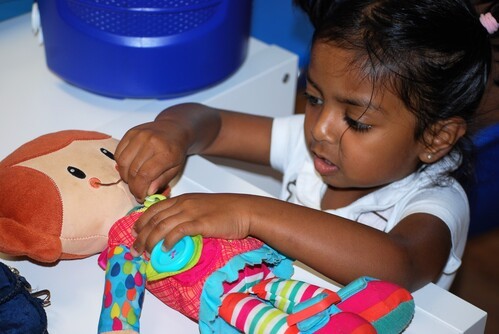
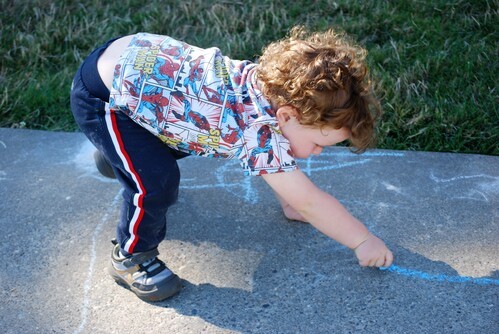
Drawing and Painting
Drawing and painting allow children to express themselves creatively and support their fine motor development necessary for emerging writing skills. Specifically, painting can offer a sensory experience when using your fingers and hands to paint as well as an impromptu science lesson in color mixing.
Adapted from https://mybrightwheel.com/blog/what-is-play-based-learning
